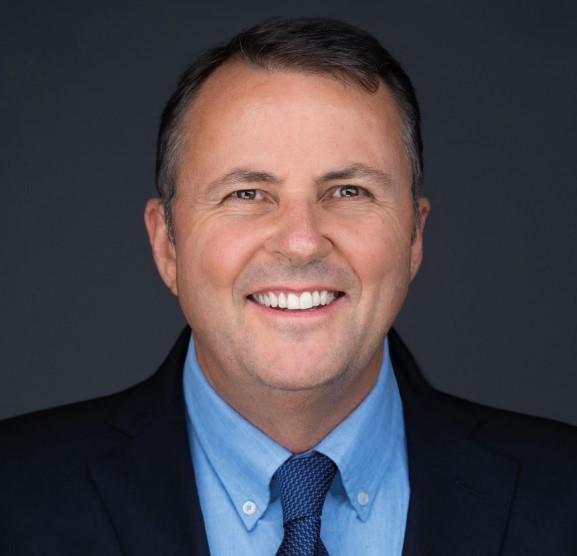02 November 2022
As SBA Communications extends its presence in Africa, Southern African Wireless Communications spoke with Nicholas Van Slyck, Senior Director, Africa and Asia to find out about the company’s plans heading into 2023 and the challenges these plans will bring.

How has the Tanzanian operation influenced business during the last 12 months?
Tanzania’s impact on SBA as an organization has been very positive. For one, it gave us a new market in Africa, our second after South Africa, which has enabled us to begin to think about a more regional management structure. We have very talented teams in both markets and they complement each other very well. We see a lot of potential synergies between the two teams. For example in South Africa, theft and vandalism is a big challenge and our local team has been developing creative solutions to combat this ongoing problem. These solutions can be shared with our operations team in Tanzania to address similar challenges. Likewise, Tanzania is a market where the towercos have the responsibility for power and our local team there is quite skilled at managing this part of the business. In South Africa, where power is just beginning to shift from the MNOs to the towercos, there is much for our local ops team to learn from their counterparts in Tanzania. These regional synergies are not just limited to Africa, and we expect it eventually to spread across multiple SBA markets and that’s exciting.
Which of your infrastructure solutions has seen the greatest demand from the wireless service provider within Africa? Has this influenced your development in the region?
Well, that would undoubtedly be our towers. We have approximately 1,700 high quality, multi-tenant towers in South Africa and 1,445 in Tanzania. Demand for colocation has been strong in South Africa where we average 2.3 tenants per tower. In Tanzania, a market we only entered in January of this year, we are beginning to see real interest in colocation from all MNOs. We are enthusiastic about the growth prospects in both markets.
Is there a preference for lease or network ownership within this region? Can you explain why?
In Africa and from the carrier perspective, the preference seems to be to lease the infrastructure rather than own it. Clearly the number of sale lease back transactions all over the continent over the last decade supports this view. Over time, MNOs have come to accept that building redundant infrastructure is inefficient and not the best use of their capital. They’ve decided it’s better to use their resources to invest in network improvements and expansion so they can attract more subscribers because that’s their core business. From their perspective, why tie up all that capital and then have to deal with the headaches of ongoing operations when the whole process can be easily outsourced.
Do you feel demand for green solutions growing and can you give examples of where?
Yes, I do. There have been a number of technological advancements with solar power over the last decade resulting in greater dependability at reduced costs. We now see solar power as offering a compelling alternative energy solution for carriers. In fact, we have an ongoing solar business in Jamaica where we are using solar power and batteries to provide backup power to one of our customers. Our solar solution has lowered this customer’s energy costs by reducing dependency and power
consumption from the grid. This can definitely be a model we export to other markets. In Tanzania, we have a number of sites that are located in areas that have either bad grid or no grid at all. Solar solutions are used at some of those sites, but not all. With fuel prices going up so sharply over the last 12 months coupled with the fact
that carriers and infrastructure companies both want to reduce their carbon footprint, it seems to me there’s a strong case here for more solar
powered solutions in this market.
What have been the biggest challenges in this region?
Africa is a large and diverse continent with over 50 countries and our experience so far has been limited to just two of them. So speaking from that perspective, I would say the two biggest challenges we’ve faced so far are grid reliability, and theft and vandalism. In South Africa, grid reliability has deteriorated over the last few years resulting in daily load shedding. Historically, MNOs have assumed the responsibility for backup power, but that is changing. In a country with 40 percent unemployment, theft and vandalism are big problems resulting in substantial losses of batteries, fuel, and even entire generators. MNOs want to pass this responsibility over to the towercos for obvious reasons. The challenge for our industry is to develop a cost effective solution that is both reliable and has an effective anti-theft system built in to
withstand the constant threat. That is where we all seem to be at the moment.
Do you have plans to extend your activities into other African countries and if so, how?
We always have our eyes open for new market opportunities, but they must meet our disciplined investment criteria. Our approach over the years has been to look for high quality growth in stable markets, so we are extremely selective in terms of the countries and assets we invest in because it matters. Our stock’s performance seems to support that view. Having said that, we are a growth company as we’ve been for the last 33 years, so yes, we do have a vision that includes extending our activities into other countries. How we do it is a more complicated question because it varies from market to market. For example, expansion could come in the form of a sizable build-to suit opportunity in a stable market with three or more healthy MNOs. This was our approach in South Africa seven years ago and the local team has executed on that strategy very well. Today, we have over approximately 1,700 sites, some we bought but most we built. Another approach is from a sale lease back transaction much like what we did in Tanzania. There we acquired 1,445 cell sites from Airtel which made us a significant player in that market overnight. The third option would be a hybrid of the first two. Here we would look to do a sale lease back with a commitment for decent volume of BTS over a defined period of time, two or three years.
Can you name some of the biggest deals you have signed during the last 12 months?
In Africa, certainly the biggest deal we’ve signed over the last 12 months is Tanzania with Airtel where we acquired 1,445 sites. Actually, this transaction was a joint venture between SBA and Paradigm Infrastructure Partners where SBA is the majority owner. The local entity is named Minara Tanzania which means “tower” in Swahili. We are very pleased with the way things are going in that country and the Paradigm guys have been great partners. The management team has a
lot of tower experience all over Africa which
has enabled us to hit the ground running and
provided enormous benefits.
What are you looking to achieve over the next year?
As previously stated, SBA is a growth company so the obvious answer is more growth. We see sustained growth coming from our existing markets in terms of new builds and lease up. In South Africa, growth has been steady because the team has performed well for our customers resulting in a lot of repeat business. In Tanzania, we are just getting started, but we like what we see so far. MNOs clearly embrace the shared infrastructure model so we see very good potential for lease-up on our existing portfolio. Additionally, we expect to have some new build opportunities. And we’re always open to discuss M&A deals that are at price points that are rational and make sense for SBA.
What’s been the biggest lesson over the past year?
Great question. As you know, the tower industry worldwide has been undergoing major changes in recent years. Carriers want a better value proposition, they want more for less from towercos without sacrificing quality of service. At the same time, the industry has attracted a large amount of investment and new entrants, both of which have had a profound impact, both good and bad. The investment strategies don’t always appear rational in our view, and the new entrants usually have a big learning curve in front of them. The industry is changing, it’s not the same as it was 5 years ago. Against this backdrop, the biggest lesson for us is to not be terribly concerned with what others are doing because that’s a distraction. Rather, it’s more of a reminder that we need to stay focused on the fundamentals of the business, something we’ve worked hard on for over three decades, while we seek to be more responsive to our customers’ needs whether that be backup power, green energy solutions
or edge data centers. We have an excellent track record of delivering high quality growth and I don’t anticipate that will change as long as we stay focused on what we do best and block out the noise on the periphery.
How do you differentiate yourself from your competitors?
Well, there are quite a few companies invested in the tower sector in Africa. At last count, there were 30 just in South Africa alone. So in such a competitive environment, I see a few things that differentiate SBA from others. For one, once we enter a market, we take a long-term view of things. We’re not interested in short-term gains at the expense of the long-term relationship with our customers. The combination of our substantial financial and operational capabilities coupled with its long term investment outlook gives us a great deal of flexibility and creates unique opportunities for us to work with our customers to explore different business lines and deal structures that simply may not be available to others who have a shorter investment horizon. Not only that, but our decision-making process is quick and smooth and once we decide that something meets our disciplined investment criteria, deployment of capital happens soon after. And we have local teams in South Africa and Tanzania that have proven track records in managing existing tower portfolios, developing new sites and overseeing power systems. We like to say that SBA has the resources of a large company but we are small and nimble enough to be effective in the individual markets where we have businesses.







